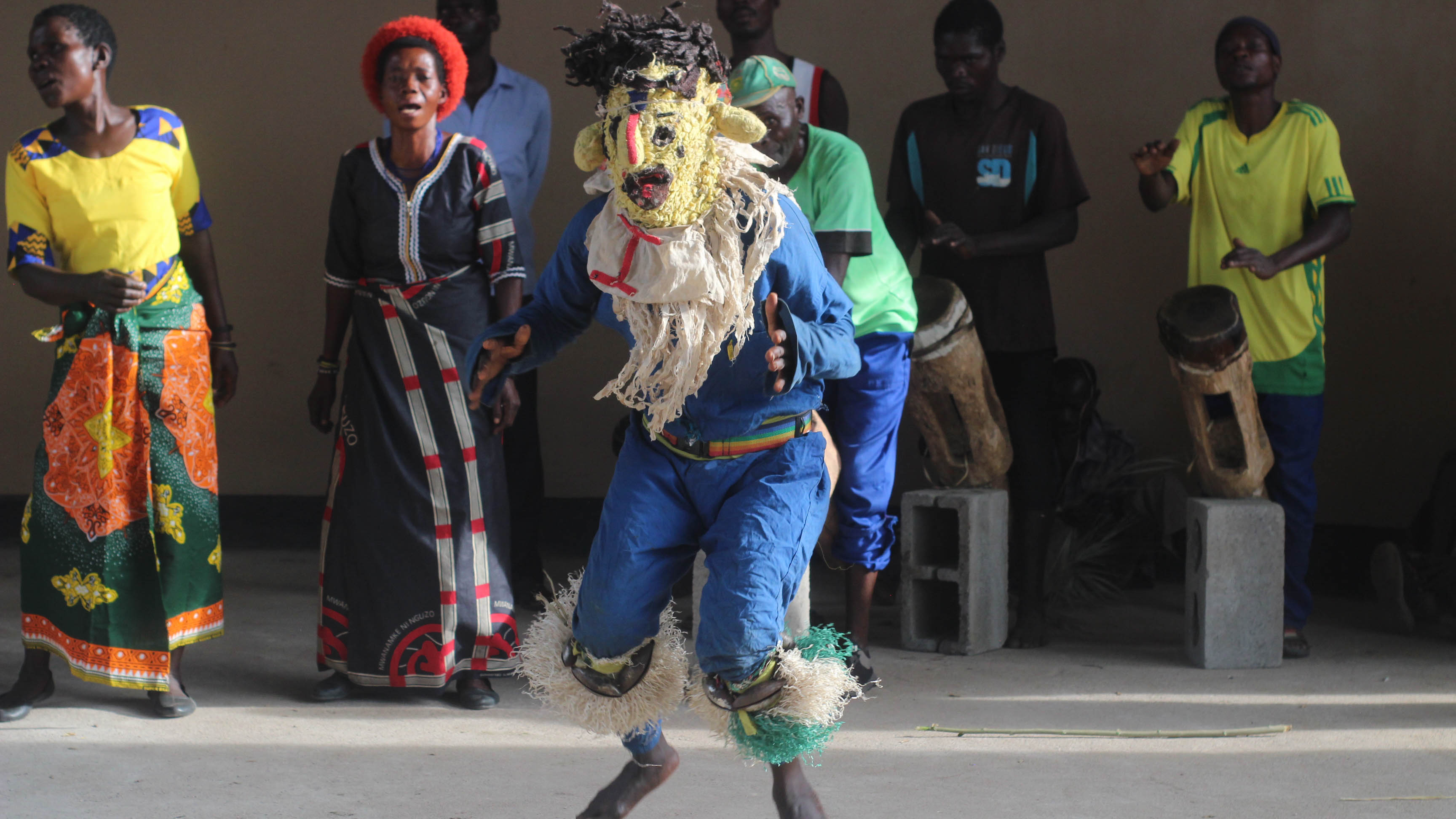Blog
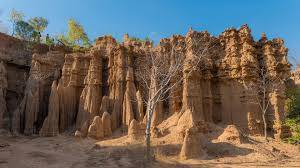
Rebekah Mpate
2025-03-11
Malawi's Natural Wonders
In the heart of Southeastern Africa lies a land where rich and eerie stories are whispered on the winds, and sacred sites are hidden, waiting to be uncovered. The "Warm Heart of Africa", Malawi, offers more than just beautiful views. It holds a rich history, a sense of wonder, and a deep spiritual significance that stretches back centuries. While Lake Malawi and the towering mountains are widely recognized, the country is also home to hidden treasures, sacred places, and mystical landscapes that are as enigmatic as they are beautiful. From UNESCO World Heritage Sites to ancient rituals, Malawi offers an unforgettable journey into the unknown.
1. Khulubvi and Mbona Shrine:The Essence of Ancient Spirituality
At the tip of South Malawi, Nsanje, lies the Mbona Shrine, one of Malawi’s most revered sacred sites. Dedicated to Mbona, a powerful spirit believed to protect the land and its people, the shrine has long been a place of pilgrimage for the Mang'anja people.Mbona was a benevolent figure whose spirit continues to watch over the region. The shrine’s serene,mystical setting ,surrounded by rolling hills creates an atmosphere that feels both peaceful and otherworldly.
Nearby, other sacred sites emerged where people gather to worship the spirit.Mwala Umodzi shrine, along the Thangadzi River, is named after a rock outcrop known as "One Rock." According to legend, Mbona once sat on this rock, leaving behind imprints that are now referred to as "Mbona's buttocks”. These sacred sites all preserve the rich cultural heritage of the Maravi Kingdom.
2. Malawi Slave Routes and Dr. David Livingstone Trail
Though much of the story of the transatlantic slave trade is centered on Africa’s coastal regions, Malawi also played a key role in this dark chapter of history. Dr. David Livingstone, the Scottish missionary and explorer, is remembered for his efforts to abolish the slave trade, and his travels through Malawi were central to this mission. Along the shores of Lake Malawi, remnants of his journey can be found, including memorials and sites tied to Livingstone’s legacy. These locations offer a chance to reflect on the past and honor the resilience of those who fought for freedom.
The slave routes pass through Malawi from Karonga, extending into the southern Highlands. Notable landmarks include the fig tree at Nkhotakota, where Livingstone and local chiefs signed a treaty to end the slave trade. The remains of a mosque built by Jumbe and the imposing Fort Mangochi, also stand as enduring symbols of Malawi’s history.
3. Mulanje Mountain: Mystical Ascents
For adventurers with a fascination for the mystical, Sapitwa Peak is a must-see. Standing 9,849 feet, Sapitwa is the highest peak in the Mulanje Mountain range, and it is deeply revered in local folklore. The name "Sapitwa," meaning "not gone to," suggests that the peak is sacred, and many locals believe spirits inhabit the area. Reaching the top is considered an act of bravery, going through dense forests, rugged terrain, and rushing streams.
There is something deeply spiritual about standing atop Sapitwa, as if entering a realm where the land itself is alive with mystery.
Nearby, Dziwe la Nkhalamba ("pool of elders") is another site of mystical significance. Surrounded by cool mountain air and quiet waters, this serene location is said to be the home of an ancient sage. For those seeking peace and reflection, it is one of Malawi's most enchanting spots, imbued with spiritual energy.
4. Chongoni Rock Art Area: Timeless Stories Carved in Stone
As a UNESCO World Heritage Site, the Chongoni Rock Art Area is home to one of the richest collections of ancient rock paintings in sub-Saharan Africa. Situated in the central region of Malawi, in Dedza, Chongoni contains over 127 rock shelters adorned with artworks that date back thousands of years. These paintings depict animals, human figures, and abstract symbols, offering a glimpse into the lives of early inhabitants of the region.
Beyond their artistic value, these paintings hold deep cultural and spiritual significance. They reflect the beliefs, customs, and daily lives of ancient people, with symbols tied to initiation rites and rituals that are still practiced by the Chewa people today. Walking through Chongoni, you’ll be awe-struck by the stories preserved in stone, each stroke a testament to the resilience and creativity of the early peoples that lived in Malawi.
5. Mtengo Wachilema and Mwala wa Mphini: Sacred and Mysterious Sites
Though located in different parts of the country, Mtengo Wachilema and Mwala wa Mphini share a deep spiritual significance. Mtengo Wachilema, meaning “Chilema” or “disabled,” is a gnarled and twisted tree that evokes a sense of mystery. Known for its eerie appearance, the tree is believed to be haunted by spirits, and locals regard it as a place for ancient rituals and sacrifices. The tree’s haunting beauty offers a sense of discovery, transporting visitors into Malawi’s spiritual past.
Meanwhile, Mwala wa Mphini, located within Lake Malawi National Park at Cape Maclear, is a stunning rock formation marked with” traditional scars”. This site is rich in heritage and holds tales passed down through generations. It is believe to be a home for ancient spirits .Its unique appearance and cultural significance make it a fascinating stop for those keen to explore Malawi’s deep spiritual history and its geographical positioning complements the Lake Malawi National Park perfectly.
6. Malape Hills: Secrets of the Ancient Past
The Malape Hills,located in the tranquil area of Lilomba in Machinga, are home to ancient rock formations, caves, and a mysterious landscape that has inspired local legends. Some believe that the hills conceal treasures or sacred relics from forgotten civilizations, while others claim that hidden tunnels run beneath the hills, protected by ancestral spirits. Hiking through the Malape Hills is not only a physical journey but also a metaphysical one, offering travelers a chance to connect with Malawi’s mysterious past.
For photography enthusiasts, the Malape Hills are especially photogenic, providing stunning vistas that highlight the beauty and enigma of the area.
A Journey Awaits! Malawi’s hidden treasures and mystical landscapes are waiting to be explored. From ancient rock art and sacred shrines to mystical mountains and healing pools, the country offers experiences that transport you to the heart of Africa’s ancient past. Visit Malawi to discover why it has to be on your travel bucket list.Whether you’re an adventurer seeking new heights, a history enthusiast eager to uncover hidden stories, or someone seeking spiritual renewal, Malawi has something for everyone.
Read More
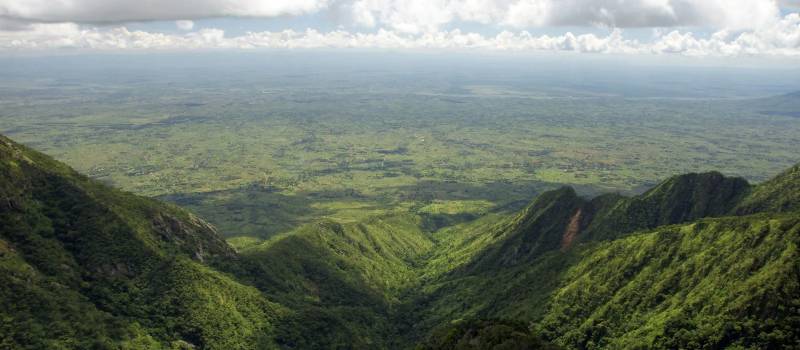
Rebekah Mpate
2025-03-11
A Tranquil Escape in Malawi: The Zomba Plateau
In southern Malawi is a serene sanctuary that feels worlds away from the busy cities and tourist hotspots: the Zomba Plateau. As you arrive in Zomba City, the beautiful mountain can be seen from every turn.Often overshadowed by the towering peaks of Mulanje or the Nyika Plateau, Zomba Plateau is a haven for those seeking tranquility, beauty, and a taste of Malawi’s unspoiled nature. With mist-covered forests, cascading waterfalls, and panoramic views stretching as far as the eye can see, Zomba remains one of the country’s best-kept secrets.
A Breathtaking Elevation
Rising over 2,087 meters (6,087 feet) above sea level, the Zomba Plateau offers a stunning contrast to the lowland landscapes of Malawi. Its cool, temperate climate provides a refreshing escape from the heat that characterizes much of the country. Lush greenery and dense forests create an atmosphere of peace, perfect for anyone looking to unwind from the hustle of daily life.
This geological marvel, shaped by ancient volcanic activity, boasts a distinctive terrain and rich biodiversity. The plateau’s cooler climate nurtures a variety of flora and fauna. Vibrant birdlife, including the rare African Crowned Eagle, thrives here, and monkeys can often be spotted swinging through the trees. The plateau is also steeped in cultural history, with its royal landmarks adding to its allure.
An Adventure for the Soul: Trails and Waterfalls
Exploring the Zomba Plateau is best done on foot, with numerous trails weaving through the dense forests. Whether you're a seasoned hiker or prefer a leisurely stroll, there's a trail for everyone. Each path unveils unique treasures ,hidden waterfalls, secluded viewpoints, or glimpses of wildlife that call this lush haven home.
One popular trail is the Chingwe’s Hole Trail, which takes adventurers through thick woodlands to the edge of a deep gorge. This site, shrouded in mystery, has stories of being a graveyard for lepers, with spirits believed to linger in the area. Along the way, the soothing sound of running water accompanies hikers as springs and waterfalls appear at almost every turn. The plateau's cool, crystal-clear pools invite the adventurous to take a refreshing dip.
Notable waterfalls include the Mandala Falls, Williams Falls, and Chivundi Falls, all tucked within the forest. These enchanting cascades are particularly mesmerizing after rainfall, when the water flows vigorously, creating a mist that adds an air of mystery to the surroundings.
Unmatched Views: A Photographer’s Dream
Zomba Plateau offers some of the most spectacular vistas in all of Malawi. From its peak, you can see for miles in every direction, with views of Lake Chilwa, Mount Mulanje to the southeast, and the distant mountains of Mozambique. To the west, the Shire River, which drains Lake Malawi into the Indian Ocean, is a sight to behold.
The views are especially captivating during sunrise or sunset when the landscape is bathed in golden hues, making it a photographer’s paradise. Famous spots like Emperor’s View named after Emperor Haile Selassie of Ethiopia who visited in 1964, and Queen’s View, honoring Queen Elizabeth’s visit in 1957, provide breathtaking vantage points of Zomba town and beyond.
Adding to the beauty are the plateau’s diverse plant life, including orchids and giant ferns. Numerous viewpoints scattered across the area offer unique angles to capture the magnificent surroundings.
Zomba Town: A Blend of History and Culture
At the base of the plateau lies the charming town of Zomba, the former capital of Malawi during British colonial rule. Zomba’s colonial-era architecture and lush gardens provide a fascinating glimpse into the country’s past. Walking through its streets, visitors can admire old government buildings, churches, and a lingering sense of history.
The town’s local markets are vibrant and bustling, offering handmade crafts, textiles, and fresh produce. Wandering through these markets connects visitors to the area’s rich culture and traditions.
The Zomba Plateau is also imbued with spiritual significance. The local people consider the plateau sacred, believing it is protected by spirits. During the colonial era, the British administrators chose Zomba as their capital due to its cool climate and strategic location, making it an ideal retreat from the sweltering heat of the lower lands.
Where to Stay: Cozy Retreats in Nature
Zomba Plateau offers a variety of accommodations to suit different preferences. For those seeking comfort, Kuchawe Inn provides stunning scenery and relaxing accommodation. The Zomba Forest Lodge, nestled on the edge of the plateau, offers an intimate escape with easy access to trails, surrounded by the sounds of nature.
For a more adventurous experience, camping is a fantastic option. Pitch a tent under a blanket of stars and immerse yourself in the plateau’s peace and quiet. A night spent camping here feels like stepping into another world, tranquil, cool, and full of possibility.
How to Get There
Zomba Plateau is located about 70 kilometers (43 miles) from Blantyre, Malawi’s commercial hub, making it easily accessible for day trips or weekend getaways. The scenic drive through rolling hills and lush countryside is a preview of the beauty awaiting you at the plateau. Upon arrival, local guides can assist in navigating the trails and waterfalls, ensuring an unforgettable experience.
Why Zomba Plateau Should Be on Your Bucket List
Peaceful retreat: Escape the heat and chaos with the plateau’s cool climate and tranquil ambiance.
Diverse trails: Discover breathtaking views and hidden gems, whether on a casual stroll or a challenging hike.
Rich history: Dive into Zomba Town’s colonial past and the sacred significance of the plateau.
Spectacular vistas: Capture unmatched panoramic views of Malawi’s diverse landscapes.
Unique wildlife: Encounter vibrant birdlife, playful monkeys, and lush plant species.
Zomba Plateau: Nature’s Hidden Gem
The Zomba Plateau is a tranquil escape that offers so much more than meets the eye. From misty forests and cascading waterfalls to panoramic views and rich history, this hidden gem in Malawi is a must-visit for anyone seeking an authentic, off-the-beaten-path adventure. Whether you're an outdoor enthusiast, a history lover, or simply in need of peace and quiet, the Zomba Plateau invites you to immerse yourself in its natural beauty, serenity, and discovery.
Read More
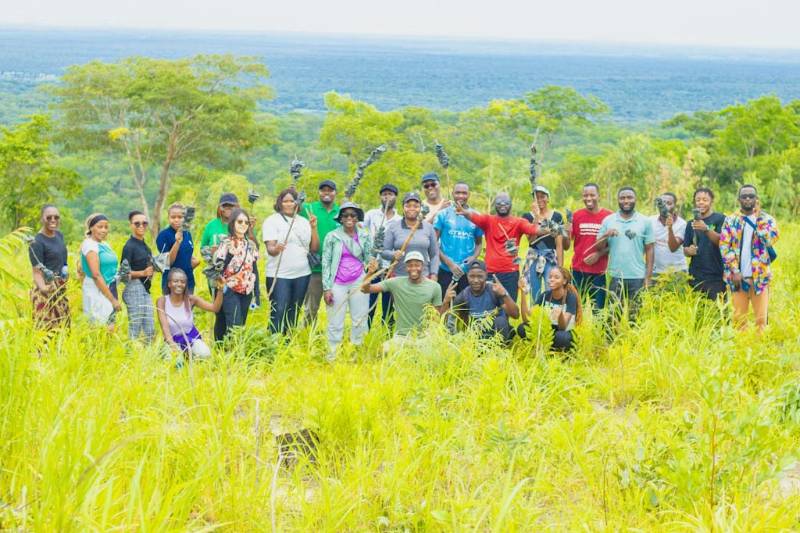
Rebekah Mpate
2025-03-11
Trails and Trees; The Dzalanyama Group Tour
As the sun rose on January 15th, our group tour to Dzalanyama was already in transit. Golden rays streamed through the bus windows, casting a warm glow as we chased the sunrise. The last veil of morning fog lifted, signaling the start of our adventure. Traveling with a great group makes every journey more rewarding, and Heart Travel and Adventures had planned the perfect tour to kick off 2025.
The scenery along the way told its own story. Rolling greenery, a gift of the rainy season, stretched across the horizon. Fields swayed in the cool breeze, and roadside markets bustled with early vendors arranging fresh produce and colorful fabrics. As the city gave way to rural landscapes, farmers tended their crops, a familiar sight in Malawi’s January farming season, an ideal time for Agri-tourism enthusiasts.
The two-hour drive felt short, filled with ever-changing landscapes. Entering Dzalanyama’s rugged terrain, we passed herds of cattle and donkeys grazing along the roadside, sharing space with locals going about their day. Friendly faces waved, a testament to Malawi’s reputation as "The Warm Heart of Africa."
About 60 km southeast of Lilongwe, the vast Dzalanyama Forest Reserve spans nearly 990 square kilometers. Our first stop, the Dzalanyama Forest Lodge, sat nestled in the wilderness, offering a tranquil retreat. Nearby, streams and a waterfall enhanced the serenity. The reserve is a paradise for hikers, birdwatchers, and nature lovers. With seven winding trails, it takes at least a week to fully explore its wonders. It also borders Mozambique, making it feel like stepping onto foreign soil.
Excitement grew as our group embarked on a hike to the summit. Led by an experienced guide, we navigated steep, forested hills lined with towering maombe trees, often mistaken for pines. At the peak, exhaustion faded into awe, an endless emerald sea of trees stretched below, with distant mountains merging into the clouds, creating a breathtaking scene.
A highlight of the tour was the tree-planting initiative. Dzalanyama Forest Reserve plays a crucial role in sustaining the Kamuzu Dam, which supplies water to half of Lilongwe. To support reforestation, forest rangers, alongside representatives from the Wildlife Environmental Society of Malawi and the Dzalanyama Forest Department, guided us in planting 300 self-regenerating maombe seedlings. This effort was made possible by the hands-on involvement of the workers who will continue to nurture the forest, ensuring its future growth. The Mother Earth Initiative also contributed to the environmental push, highlighting the importance of sustainable practices for future generations. A friendly competition ensued as everyone eagerly contributed to environmental sustainability. Heart Travel and Adventures, does not just explore Malawi; we are stewards of its natural beauty.
The partnership with Dzalanyama forest department added essence to the tree planting process sharing their expertise and taking care of the planted seedlings. The presence of travel with Mervis and Austin Madinga graced the tour with their expertise offering insights into the environmental impacts of the eco-tour. Sustainable Future Initiative and mother earth joined the tour too, reinforcing the message that a sustainable future starts with active participation in conservation efforts.
Descending the hill, laughter and conversation filled the air. One hiker, Julius, captured the moment perfectly: “Strolling through serenity in Dzalanyama Forest Reserve, where nature whispers peace at every turn.” We all agreed.
As we departed, anticipation for our next adventure grew, another group tour to the UNESCO World Heritage Site, Chongoni Rock Art in Dedza Mountain. Join us for our next journey and be part of an unforgettable travel experience!
Read More
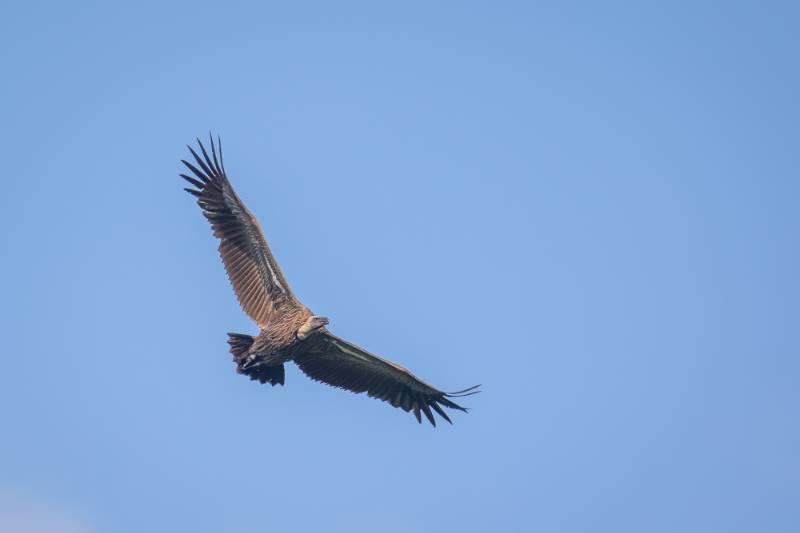
Rebekah Mpate
2025-03-11
Birding in Malawi: A Birdwatcher's Paradise
Welcome to Malawi, the land of vibrant culture, stunning landscapes, and a rich tapestry of birdlife! With over 650 species of birds, 10% of which are exclusive to this region, Malawi is a haven for ornithologists and bird enthusiasts alike. Whether you're a seasoned birder or a novice, the colorful array of bird species will captivate you and offer an unforgettable experience.
Top Birding Destinations in Malawi
Malawi's geographical diversity is the key to its rich Bird tapestry.While birds can be spotted almost anywhere in Malawi, national parks, wildlife reserves, and forest reserves offer the richest birding experiences. Here are some must-visit destinations:
Nyika National Park: Home to over 400 species of birds, Nyika National Park in northern Malawi is a scenic wonderland of montane grasslands and forests. Here, you can spot elusive species like the Blue Swallow and the majestic Wattled Crane amidst breathtaking landscapes.
Lengwe National Park: Nestled in the Lower Shire Valley, Lengwe National Park boasts over 330 bird species, including the iconic Crested Guinea Fowl and the colorful African Paradise Flycatcher. Visit during the rainy season for the best chance to witness both local and migratory birds in their natural habitat.
Liwonde National Park: Situated along the Shire River, Liwonde National Park offers a unique blend of birdwatching and safari experiences. With around 300 bird species, including the elusive African Pitta and the majestic Pel's Fishing Owl, this park is a must-visit for bird enthusiasts.
Lake Malawi: UNESCO World Heritage Site, Lake Malawi, is not just a paradise for beachgoers but also a haven for birdlife. Marvel at the sight of African Fish Eagles and Marabou Storks as they soar over the pristine waters, showcasing nature's splendor at its finest.
Mount Mulanje: The towering peaks of Mount Mulanje harbor a unique ecosystem that is home to around 180 bird species, including the endangered Cholo Alethe. Embark on a birding adventure amidst lush forests and rocky outcrops for a truly immersive experience.
Dzalanyama Forest Reserve: Explore the miombo forests of Dzalanyama Forest Reserve, where around 300 bird species await discovery. From the colorful Miombo Pied Barbet to the elusive Boulder Chat, this reserve offers endless opportunities for birdwatching enthusiasts.
Zomba Plateau: Adorned with cedar, pine, and cypress forests, the Zomba Plateau is a birding paradise brimming with endemic species. Lose yourself in the melodies of Bar-throated Apalis and Yellow-throated Apalis as you explore this picturesque highland retreat.
Lake Chilwa: Malawi's second-largest lake, Lake Chilwa, is a haven for waterbirds, with around 160 species calling it home. Embark on a boat ride across its tranquil waters to witness the spectacle of Lesser Jacanas and White Pelicans in their natural habitat.
Ntchisi Forest Reserve: Delve into the lush rainforests of Ntchisi Forest Reserve, where towering trees provide sanctuary to a myriad of bird species. From the melodious Ashy Flycatcher to the resplendent Schalow’s Turaco, this reserve offers a glimpse into Malawi's untouched wilderness.
The Best Time for Birding in Malawi
With more than 80% of its bird species breeding within its borders, Malawi offers year-round birdwatching opportunities. However, for the best chance to witness migratory birds and vibrant plumage, plan your visit between late September and April. November and December, in particular, before the onset of the rainy season, are particularly rewarding, as bird numbers peak, and many species flaunt their vibrant plumage.
Embark on Your Birding Adventure in Malawi
With its remarkable biodiversity and stunning landscapes, Malawi offers a birding experience like no other. Whether you're a seasoned ornithologist or a novice enthusiast, the opportunity to explore the rich avifauna of Malawi promises amazing encounters with some of Africa's most captivating bird species. So pack your binoculars, lace up your boots, and embark on an avian adventure in the Warm Heart of Africa!
Read More
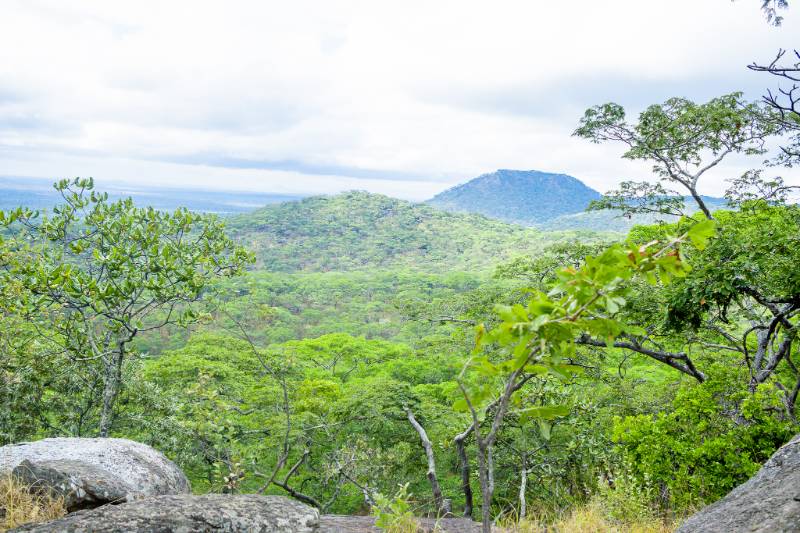
Rebekah Mpate
2025-03-11
Discovering Malawi's Diverse Hiking and Trekking Trails
Malawi offers one of the continent's most exceptional landscapes, making it an perfect destination for hiking and trekking enthusiasts. With Lake Malawi occupying a quarter of the country and its highest peak, Mount Mulanje, reaching 3,002 meters, Malawi boasts a remarkable variety of terrain, including plateaus, highlands, forests, mountains, and dramatic river valleys.
1. Mount Mulanje:
Malawi's highest mountain, locally known as "chilumba mu mlengalenga" or 'Island in the Sky,' offers breathtaking trails surrounded by lush grasslands and forested plateaus. With numerous trailheads and mountain lodges, Mount Mulanje provides options for both day hikes and multi-day adventures, including the chance to climb Sapitwa, Malawi's highest peak.
2. Nyika Plateau:
Nyika National Park, Malawi's oldest and largest national park, boasts sweeping slopes and picturesque plains, offering leisurely walks amidst vibrant birdlife and stunning grasslands. The multi-day hike from Nyika Plateau to Livingstonia is a highlight, providing awe-inspiring scenery along the way.
3. Zomba Plateau:
Rising behind Zomba Town, the Zomba Plateau offers panoramic views and diverse hiking trails, including routes to Malombe Peak and William's Falls. With options for day trips or overnight stays, visitors can explore British colonial architecture and immerse themselves in the area's rich history.
4. Viphya Plateau:
Home to Viphya Forest, the largest man-made forest in Africa, Viphya Plateau features breathtaking landscapes and marked hiking trails. The three-day walk from Kawandama Hills to Kande Beach Resort offers a spectacular journey through montane grasslands and evergreen forests.
5. Dzalanyama Forest Reserve:
Located southwest of Lilongwe, Dzalanyama Forest Reserve offers a variety of trekking trails through hilly forests and mountain biking opportunities. With well-marked trails and bird guides available, visitors can enjoy the reserve's natural beauty and diverse wildlife.
6. Dedza Mountain:
Dedza Mountain's planted pine trees and wildflower-lined paths provide a pleasant hiking experience with stunning views of Lake Malawi and Mount Mulanje. Visitors can embark on a round-trip hike starting from Dedza Pottery Lodge, followed by exploration of UNESCO World Heritage Sites nearby.
7. Ntchisi Forest Reserve:
As one of Malawi's last remaining intact rainforests, Ntchisi Forest Reserve offers a cool climate and diverse vegetation, making it ideal for hiking and birdwatching. With well-marked trails and accommodation options at Ntchisi Forest Lodge, visitors can immerse themselves in the reserve's natural beauty.
8. Nkhoma Mountain:
Offering panoramic views of Lilongwe and Lake Malawi, Nkhoma Mountain provides challenging yet rewarding hiking opportunities. With two peaks and a unique atmosphere, Nkhoma Mountain is popular among local hikers seeking adventure close to Lilongwe.
From the serene shores of Lake Malawi to the majestic peaks of Mount Mulanje, Malawi's diverse landscape offers a wealth of hiking and trekking experiences for adventurers of all levels. Whether exploring ancient forests, scaling towering plateaus, or admiring panoramic vistas, each trail promises unforgettable moments amidst Africa's natural splendor. So lace up your boots, pack your sense of adventure, and embark on a journey to discover the breathtaking beauty of Malawi's hiking trails.
Read More
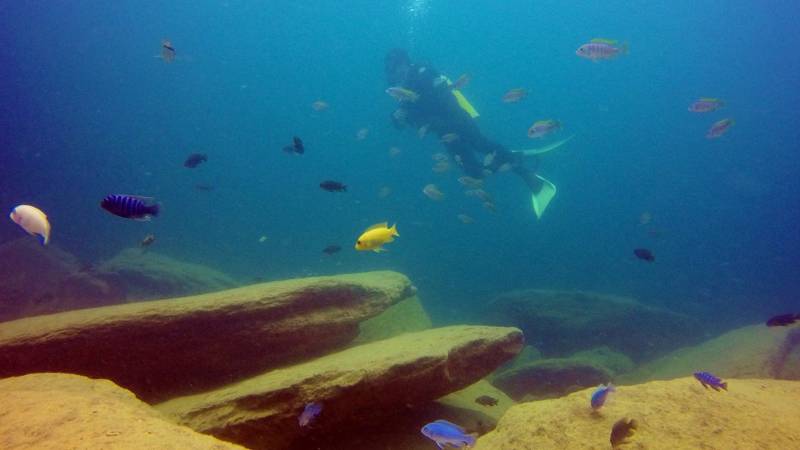
Rebekah Mpate
2025-03-11
Exploring Malawi's Water Sports Along Lake Malawi
Located in the heart of Africa, Malawi boasts one of the continent's most spectacular natural wonders: Lake Malawi. Renowned for its golden sandy beaches and crystal-clear blue waters, this enchanting lake offers a paradise for water sports enthusiasts from around the globe. Known as 'the Lake of Stars' by Scottish missionary David Livingstone, Lake Malawi is not only a scenic marvel but also home to an astonishing array of cichlid fish species. With over 1,000 species of these vibrant fish, Lake Malawi holds the title of having the highest diversity of cichlids in the world.
Scuba Diving:
Delve into the underwater world of Lake Malawi through scuba diving. Explore dramatic rock formations, caves, and cliffs while encountering the unique mouth-breeding phenomenon of cichlids. Scuba diving hotspots can be found in various locations along the lake, including Cape Maclear and Nkhata Bay.
Snorkelling:
Embark on a mesmerizing journey through the kaleidoscopic underwater landscapes of Lake Malawi. Snorkelling allows you to swim alongside thousands of brilliantly colored fish, creating unforgettable memories in this aquatic wonderland. Prime snorkelling spots can be found near popular tourist destinations such as Monkey Bay and Likoma Island.
Boat Trips:
Experience the allure of Lake Malawi from the comfort of a boat. Whether it's a leisurely cruise on the MV Ilala ferry or an adventurous exploration of secluded coves and snorkelling spots, boat trips offer a unique perspective of this vast water paradise. Boat trips are available from various ports along the lake, including Monkey Bay and Nkhata Bay.
Kayaking:
Paddle your way through the tranquil waters of Lake Malawi aboard a kayak. From leisurely island-hopping adventures to adrenaline-fueled excursions, kayaking provides an intimate and immersive experience of the lake's beauty. Kayak rentals are available at many lakeside lodges and resorts, particularly in popular tourist hubs like Cape Maclear and Nkhata Bay.
Sailing:
Feel the wind in your sails as you glide across the serene waters of Lake Malawi. Sailing enthusiasts can revel in the gentle breezes and picturesque surroundings of Africa's third-largest lake. Sailing opportunities abound along the shores of Lake Malawi, with rentals and guided excursions offered in destinations such as Cape Maclear and Likoma Island.
Stand-Up Paddle Boarding (SUP):
Master the art of balance while navigating the calm waters of Lake Malawi on a stand-up paddleboard. Whether you seek a peaceful retreat or a fun-filled workout, SUP offers a delightful way to connect with nature. SUP rentals and guided tours are available at various lakeside resorts and beaches, including those in Cape Maclear and Nkhata Bay.
Windsurfing:
Harness the power of the wind as you glide gracefully across Lake Malawi's surface on a windsurfing board. Perfect for enthusiasts of all skill levels, windsurfing promises an exhilarating aquatic adventure. Windsurfing equipment and lessons can be found at select lakeside resorts and water sports centers, particularly in popular tourist areas like Cape Maclear and Nkhata Bay.
Water Skiing:
Experience the thrill of gliding across Lake Malawi's shimmering waters on water skis. With expert guidance and top-notch equipment available at lakeside resorts, water skiing offers an adrenaline-packed escapade for thrill-seekers. Water skiing facilities can be found at various resorts and beaches along Lake Malawi, including those in Cape Maclear and Nkhata Bay.
Rafting:
Embark on an adrenaline-fueled journey down the rapids of Malawi's rivers. Rafting in the pristine wilderness of Malawi promises an unforgettable adventure for adrenaline junkies and nature enthusiasts alike. While not directly on Lake Malawi, rafting excursions can be arranged through tour operators in nearby areas such as the Bua River in the Nkhotakota Wildlife Reserve.
Angling:
Cast your line into the abundant waters of Lake Malawi and reel in the catch of a lifetime. With a rich variety of game fish species, angling in Malawi offers a rewarding experience for fishing enthusiasts of all levels. Prime fishing spots can be found along the shores of Lake Malawi, particularly in areas known for their rich aquatic biodiversity such as Nkhata Bay and Cape Maclear.
Swimming:
Indulge in the sheer bliss of swimming in the warm, inviting waters of Lake Malawi. Whether you're diving beneath the surface to glimpse colorful cichlids or simply basking in the sun on the idyllic beaches, swimming in Lake Malawi is an experience like no other. Safe swimming areas can be found at many lakeside lodges and resorts, ensuring a refreshing and enjoyable aquatic experience for visitors.
To conclude it all, Malawi's water sports scene offers something for everyone, from thrilling adventures to serene escapes. Whether you’re exploring the depths of Lake Malawi or skimming its surface, you’re sure to be captivated by the beauty and diversity of this African aquatic paradise.
Read More
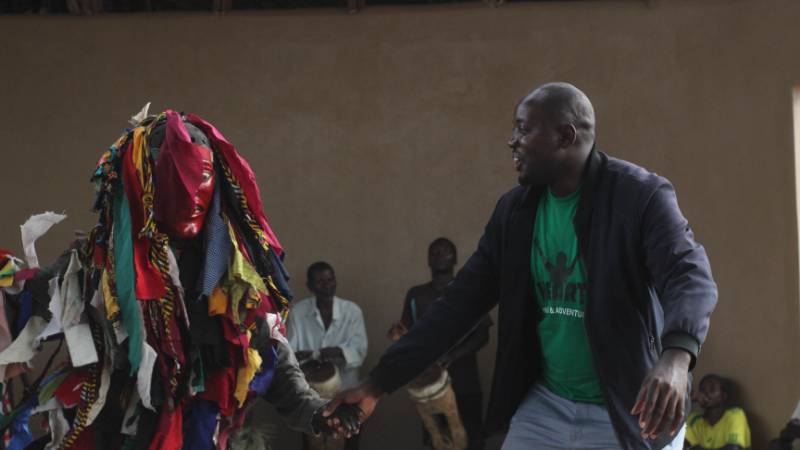
Rebekah Mpate
2025-03-11
Experience The Rich Cultural Heritage of Malawi
When you think of Malawi, what comes to mind? Stunning landscapes, warm-hearted people, and vibrant culture, right? Absolutely! One of the most captivating aspects of visiting Malawi is immersing yourself in its rich cultural heritage. Let's delve into what makes Malawi's cultural tapestry so unique and inviting.
Warmth and Hospitality: The Heart of Malawi
The people of Malawi are renowned for their warmth and hospitality, earning the country the affectionate nickname, the "Warm Heart of Africa." From the moment you arrive, you'll be welcomed with genuine smiles and open arms, making you feel right at home. It's this genuine kindness that leaves a lasting impression on visitors, making many feel like Malawi is their second home.
A Tapestry of Cultures: Drums, Dances, and Masks
Malawi's cultural landscape is a vibrant tapestry woven with diverse traditions, dances, and languages. With over 12 different ethnic groups calling Malawi home, each brings its own unique flavor to the cultural mosaic. Whether it's the rhythmic beats of drums, the mesmerizing dance performances, or the intricate masks used in ceremonies, Malawi's cultural heritage continues to fascinate visitors from around the globe.
Rooted in History: From Maravi to Modern Malawi
Delve into Malawi's rich history, from the Maravi people who settled in the region in the late 15th century to the diverse ethnic groups that call Malawi home today. The country's name itself is thought to derive from the Maravi word meaning "Flames," reflecting its fiery and resilient spirit. Over the centuries, Malawi has seen the rise and fall of empires, the arrival of traders and missionaries, and the struggle for independence, shaping its cultural identity along the way.
Religious Harmony: Christianity, Islam, and Beyond
Religion plays a significant role in Malawi's cultural landscape, with Christianity and Islam being the two predominant faiths. Introduced by missionaries and traders over the centuries, these religions peacefully coexist, reflecting the country's ethos of tolerance and acceptance. Whether you're visiting a historic church or mosque, you'll witness the deep-rooted spirituality that permeates Malawian society.
Language and Expression: From Chichewa to Cultural Art
Language is a vital thread that binds Malawi's diverse communities together. While English serves as the official language, Chichewa is the national language, spoken in the south and central regions, with other languages like Chitumbuka adding to the linguistic tapestry. Expressions of culture are not confined to words alone; they come alive through music, dance, and art. From traditional wood carvings to contemporary paintings, Malawi's artistic expression knows no bounds.
Explore Malawi's Cultural Gems: Museums, Dance, and Art
No visit to Malawi is complete without exploring its cultural gems. From the UNESCO World Heritage-listed Chongoni Rock Art Area to the vibrant dance performances of Gule Wamkulu and Vimbuza Healing Dance, there's a treasure trove of experiences waiting to be discovered. Immerse yourself in the exhibits of the Chichiri Museum or wander through the KuNgoni Centre of Culture and Art, where history comes alive through art, artifacts, and interactive displays.
Savor the Flavors: Malawian Cuisine
And let's not forget about the culinary delights! Indulge in Malawi's national dish, nsima, a hearty maize-based staple served with stewed vegetables or fish. Sample local delicacies like kondowole, a cassava-based dish, or savor the flavors of chambo, a freshwater fish endemic to Lake Malawi. And don't miss out on zitumbuwa, delicious banana fritters perfect for satisfying your sweet tooth.
Plan Your Cultural Adventure in Malawi
Ready to embark on a cultural adventure like no other? Come and experience the warmth, diversity, and vibrancy of Malawi's cultural heritage. Whether you're exploring ancient rock art sites, dancing to the beat of traditional drums, or savoring the flavors of Malawian cuisine, you're sure to create memories that will last a lifetime. Malawi awaits,Kalibu.
Read More
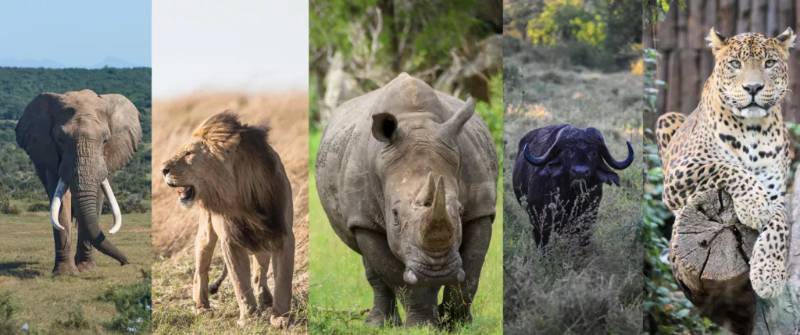
Rebekah Mpate
2025-03-11
Experience Malawis Wildlife
In recent years, Malawi has emerged as a hidden gem for wildlife enthusiasts, offering a unique safari experience unlike any other. With dedicated efforts from the Department of National Parks and Wildlife (DNPW) and African Parks, Malawi's wildlife numbers have surged, making it an exciting destination to explore the Big Five and beyond.
Majete Wildlife Reserve: A Conservation Success Story
Majete Wildlife Reserve stands as a testament to the remarkable transformation possible through conservation efforts. Once depleted by poaching, Majete has been revitalized with the reintroduction of rhinos, elephants, lions, and more. Today, it proudly holds the title of Malawi's only 'Big Five' reserve, offering visitors a chance to witness these magnificent creatures thriving in their natural habitat.
Liwonde National Park: Where Wildlife Flourishes
Managed by African Parks, Liwonde National Park boasts a rich ecosystem teeming with diverse wildlife. From the majestic elephants and graceful cheetahs to the elusive black rhinos, Liwonde is a haven for animal enthusiasts. Explore the park's lush landscapes through walking safaris or embark on thrilling boat safaris along the Shire River, where hippos and crocodiles lurk beneath the surface.
Nyika National Park: A Wilderness of Serenity
Nyika National Park enchants visitors with its sprawling grasslands, rolling hills, and abundant wildlife. Home to the largest population of leopards in Central Africa and over 400 bird species, Nyika promises an immersive safari experience. Hike through its pristine wilderness or embark on a thrilling mountain biking adventure to soak in the park's breathtaking scenery.
Lake Malawi National Park: Beneath the Surface
Dive into the crystal-clear waters of Lake Malawi National Park to discover a vibrant underwater world. With over 1,000 species of cichlid fish, the lake dazzles with its kaleidoscope of colors. Snorkel alongside these mesmerizing creatures or set sail on a picturesque boat trip, soaking in the beauty of Africa's third-largest lake.
Unveiling Malawi’s Hidden Gems: From Lengwe to Kasungu
Venture off the beaten path to explore Malawi's lesser-known wildlife reserves. Lengwe National Park offers a glimpse into untouched wilderness, where antelopes roam freely amidst stunning landscapes. Meanwhile, Kasungu National Park beckons with its miombo woodlands and ancient prehistoric sites, inviting travelers to uncover its secrets.
Discovering Malawi’s Natural Treasures: Vwaza Marsh and Mwabvi
Immerse yourself in the wonders of Vwaza Marsh Wildlife Reserve, where elephants, buffaloes, and hippos thrive against a backdrop of lush plains and serene lakes. For those seeking a remote adventure, Mwabvi Wildlife Reserve promises unparalleled tranquility amidst its rugged terrain and diverse wildlife.
Embark on an Exciting Safari in Malawi
Malawi invites you to experience the magic of its wildlife, where conservation efforts have transformed landscapes and rejuvenated animal populations. Whether you're marveling at majestic elephants, spotting elusive leopards, or diving into the depths of Lake Malawi, every moment promises an adventure of a lifetime. Join us in the Warm Heart of Africa and witness the beauty of Malawi's wildlife in its purest form.
Read More

Rebekah Mpate
2025-03-11
Discovering Malawi- Key insider Tips
Introduction to Malawi:
Welcome to Malawi, affectionately known as "The Warm Heart of Africa" for its hospitable people and breathtaking landscapes. Situated in Southern Africa, Malawi is a landlocked country bordered by Zambia, Tanzania, and Mozambique. Let's delve into some key facts and fascinating insights about this hidden gem.
Geography and Culture:
Malawi spans approximately 118,000 square kilometers and is renowned for its stunning landscapes, including Lake Malawi, the third largest lake in Africa. Its diverse terrain offers everything from wildlife safaris and mountain hiking to tranquil beach getaways. The country boasts a rich cultural heritage, with English as its official language and Chichewa as the national language.
Visa Requirements:
While a visa is required for most nationalities to enter Malawi, the government has recently removed visa requirements for 79 countries worldwide. This initiative aims to boost tourism and simplify entry procedures for visitors. Ensure you have a valid passport and check the Malawi Department of Immigration website for the latest visa information.
Currency and Banking:
The local currency in Malawi is the Malawian Kwacha (MWK). ATMs and banks are available, and major currencies such as US dollars and euros are widely accepted. However, it's advisable to carry cash for visa fees, shopping at local markets, and visiting remote locations.
Climate and Weather:
Malawi has a subtropical climate with distinct wet and dry seasons. The rainy season typically lasts from mid-November to April, while the dry season extends from mid-May to mid-August. The climate varies across the country, offering diverse experiences throughout the year.
Safety and Security:
According to the World Economic Forum, Malawi is considered one of the safest countries in Africa. Visitors can explore the country with peace of mind, enjoying its natural beauty and warm hospitality. However, it's always prudent to exercise caution and follow local guidelines.
Cultural Symbols and Heritage:
Malawi's flag, adopted in 1964 upon gaining independence from the British, holds deep significance. The black stripe represents the people, red symbolizes sacrifices for freedom, green portrays fertile land, and the rising sun embodies hope. Remarkably, the 31 rays denote Malawi's position as the 31st African nation to gain independence. Additionally, the country honors Dr. David Livingstone, an esteemed explorer and abolitionist, with landmarks like Livingstonia town in the north and Blantyre city in the south, named after his birthplace in Scotland.
UNESCO World Heritage Sites:
Malawi proudly hosts two UNESCO World Heritage Sites: Lake Malawi National Park and Chongoni Rock Art. Lake Malawi National Park gained its UNESCO status in 1984, home to over 1000 cichlid species, most found nowhere else. Meanwhile, Chongoni Rock Art, added in 2006, boasts 127 sites celebrated for their extensive rock art collection, reflecting Central African culture. These sites highlight Malawi's biodiversity and cultural legacy, attracting global travelers.
Natural Wonders:
Lake Malawi, often referred to as the "calendar lake," is a breathtaking natural wonder that covers about 20% of Malawi's territory. Home to diverse freshwater fish species, including endemic cichlids, the lake offers unparalleled opportunities for diving and exploration. The Shire River, the lake's outflow, is renowned for its abundant wildlife, including hippos and Nile crocodiles.
As you embark on your journey to Malawi, prepare to be enchanted by its natural beauty, rich history, and warm hospitality. Whether you are exploring ancient rock art, diving into crystal-clear waters, or embarking on a safari adventure, Malawi promises amazing experiences for every traveler.
Read More
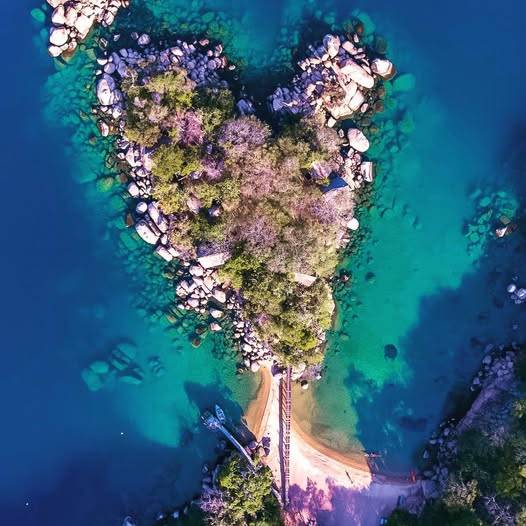
Rebekah Mpate
2025-03-10
Your Perfect Honeymoon in Malawi
Embarking on the journey from engagement to exchanging vows is an exhilarating adventure, and the pinnacle of this experience is the long-awaited honeymoon. It's a once-in-a-lifetime occasion, deserving of a destination that encapsulates romance, adventure, and tranquility. Welcome to Malawi – a hidden gem in the heart of Africa, offering an array of experiences tailored to create the perfect romantic getaway.
Why Malawi?
Picture this: endless stretches of golden sand beaches, crystal-clear waters teeming with vibrant marine life, and breathtaking landscapes dotted with lush greenery. Malawi, often referred to as the "Warm Heart of Africa," is an idyllic honeymoon destination that ticks all the boxes.
A Haven of Romance and Privacy
One of the hallmarks of a memorable honeymoon is the opportunity to bask in moments of intimacy and seclusion with your partner. Malawi's lesser-known status means you'll find peace and privacy in abundance. Imagine unwinding on a pristine beach, the only sound being the gentle lapping of waves against the shore. Or perhaps, a candlelit dinner for two under a star-studded sky by the lakeside, with nothing but serenity surrounding you.
Explore the Wonders of Lake Malawi
Lake Malawi, with its shimmering waters and myriad of colorful fish species, serves as the centerpiece of romantic escapades in Malawi. Spend your days lounging in hammocks beneath swaying palm trees, snorkeling amidst rainbow-colored fish, or venturing to uninhabited islands by kayak or paddleboard. For the adventurous souls, thrilling safaris await, offering glimpses of the majestic Big Five amidst the African wilderness.
Luxurious Retreats Await
Indulge in the lap of luxury at Malawi's premier resorts and lodges, each offering a unique blend of comfort and sophistication. From Likoma Island's Kaya Mawa, nestled amidst turquoise waters, to the elegant Makokola Retreat overlooking Lake Malawi's southern shore, there's no shortage of opulent accommodations to elevate your honeymoon experience.
Tailored Experiences for Two
Whether you're seeking adrenaline-pumping adventures or moments of serene relaxation, Malawi has something for every couple. From snorkeling and kayaking to sunset cruises and romantic spa treatments, every moment promises to be unforgettable.
Embrace the Extraordinary
Escape the ordinary and embark on a journey of love and discovery in Malawi. From the picturesque shores of Lake Malawi to the untamed beauty of its national parks, every corner of this enchanting country beckons you to create lasting memories with your beloved.
Your Malawi Honeymoon Awaits
Are you ready to embark on the romantic adventure of a lifetime? Discover the magic of Malawi and let its beauty sweep you off your feet. Plan your dream honeymoon today and unlock the secrets of this hidden paradise.
Experience the honeymoon of your dreams in Malawi – where love knows no bounds, and every moment is filled with enchantment.
Read More
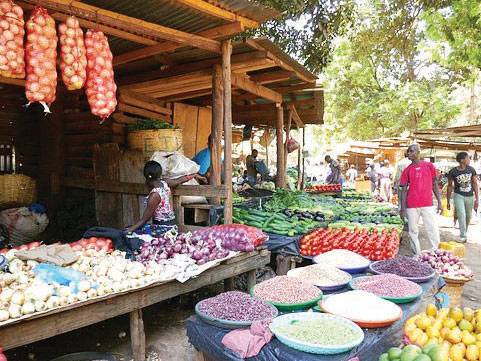
Rebekah Mpate
2025-03-09
Malawi's Markets- The Sweet Spot
Take this mind journey where you step into a vibrant market, and the air is filled with the sounds of lively chatter, the rich aroma of freshly cooked street food, and colorful displays of fruits, vegetables, and handmade crafts. As you step into the market, you are greeted by vendors calling you to stop by their stalls and check out their products. Malawi's markets are a treasure trove of culture, color, and connection. These bustling hubs are where locals gather to buy and sell everything from fresh produce to handmade crafts. As a visitor, Malawi's markets offer a unique opportunity to immerse yourself in the local culture, try new foods, and shop for one-of-a-kind souvenirs.
The markets of Malawi are among the best places to visit for anyone looking to experience the heart and soul of this beautiful country. But be ready to haggle, as negotiating is a way of doing business in Malawi. Work on those bargaining skills as you make your way to the warm heart of Africa!
The Best Way to Navigate
The best, most flexible way to explore the markets is to travel like the locals. Using public transportation like minibuses, taxis, and motorcycles gives you a familiarity with the people, as there is an exchange of ideas and conversation about current topics. It’s a great way to meet new people and truly connect with the community.
A Cultural Integration Spot
Malawi’s markets are more than just places to buy and sell goods; they are cultural hubs where people from various ethnic backgrounds come together. The beautiful blend of Malawians from all over the country is reflected in the variety of products available—from traditional crafts to spices and textiles, each product uniquely designed with symbols and patterns that tell the story of Malawi. A visit to the market offers a glimpse into the rich cultural tapestry of the country, leaving you awed by the coordination and unspoken unity among the people.
Fresh and Organic Produce
One of the highlights of Malawian markets is the abundance of fresh, organic produce. Farmers from surrounding villages bring their harvests to the markets, offering everything the farm can produce—fruits such as mangoes and bananas, leafy greens like mkhwani (pumpkin leaves), and fruit vegetables like tomatoes. Women who sell fresh fruits and vegetables wake up at the crack of dawn to ensure the day’s sales are of the highest quality and straight from the farm. The produce is often sold at very reasonable prices, making it accessible to everyone. The freshness and quality of the food are unmatched, as most of it is harvested on the same day or just a day or two before reaching the markets.
Handcrafted Treasures
Malawi is known for its skilled artisans who create beautiful handcrafted items. In the markets, you can find a wide range of crafts, including intricately woven baskets made from palm leaves, sack bags, colorful chitenje fabrics, wooden carvings, and pottery. These items make perfect souvenirs and gifts, each piece telling a story of the artisan’s heritage and creativity. It will feel like you’re taking a piece of Malawi with you.
A Culinary Adventure
The markets are also a haven for food lovers. Street food vendors offer a variety of delicious snacks and meals that showcase the flavors of Malawi. At every turn, you’ll find a bucket of food containing mandazi (fried dough) for sale, as well as boiled potatoes and sweet potatoes for those looking for a quick bite. From grilled maize and samosas to grilled sausages, there’s something to satisfy every palate. Don’t miss the chance to try local delicacies in the markets. At lunchtime, take-away stalls serve hearty meals. Women proudly carry out their cooking businesses, showcasing their culinary skills passed down through generations. You’ll hear the cheerful banter and the sound of customers smacking their lips and licking their fingers, indicating the meal is truly delicious, while the enticing aroma wafts from the pots.
A Community Experience
Visiting a market in Malawi is not just about shopping; it’s about connecting with the community. The friendly and welcoming nature of Malawians is evident as you stroll through the market stalls. Vendors are often eager to share stories about their products and their lives, making the experience even more enriching. It’s a place where you can truly feel the warmth and hospitality that Malawi is known for—a place where the sweet spot of the "Warm Heart of Africa" comes alive.
Malawi’s markets are truly the heart of the country, offering anyone the chance to immerse themselves in local culture, enjoy fresh produce, and discover unique treasures. Whether you're in the big cities of Lilongwe, Blantyre, and Mzuzu, or in the deep rural areas, there is always a beautiful market waiting to be explored. Whether you're a local or a visitor, the markets in Malawi offer an unforgettable experience that captures the essence of the country.
So are you convinced and ready to explore the heart of Malawi? Pack your bags, hop on that plane, and dive into the vibrant life of Malawi’s markets. Your adventure awaits and Heart Travel and Adventures is here to help you explore.
Read More
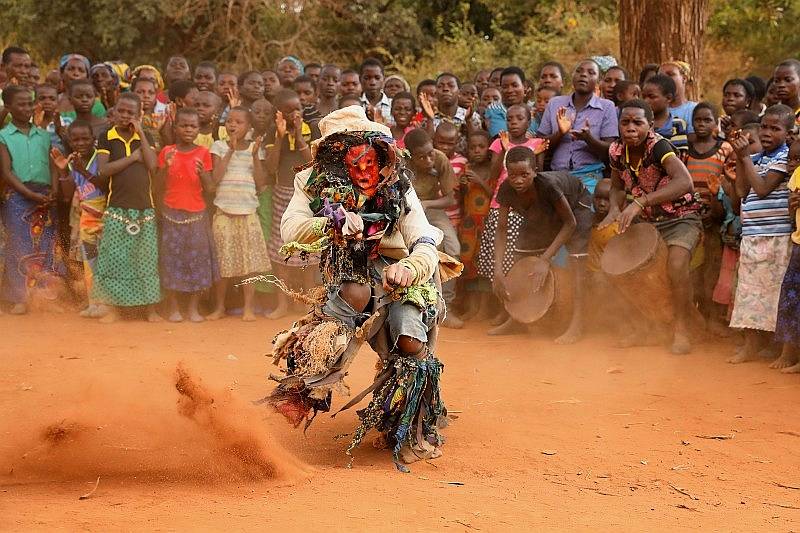
Rebekah Mpate
2025-03-07
Malawi: The People, Their Stories, Their Traditions A Cultural Odyssey
Imagine a land where ancient traditions meet vibrant modernity, where diverse ethnic groups weave a rich tapestry of culture, and where the warm heart of Africa beats strong. You arrive, and the people greet you with a heartfelt, "Welcome to Malawi, takulandirani!" Immediately, you feel an overwhelming rush of warmth, as though you've stepped into your second home away from home. Malawi is a country that captivates your senses and steals your heart.
Malawi's cultural heritage is a fascinating blend of traditional and modern influences. The country's strategic location at the crossroads of Africa has made it a melting pot of different ethnic groups, each with its unique customs, languages, and traditions. Many of these practices are influenced by neighboring countries, with migrations into the land beginning as early as the 1400s. As a result, Malawi is a true fusion of cultures.
The Ethnic Groups of Malawi
Malawi is home to over 20 ethnic groups, each contributing its distinct culture and traditions. Some of the most prominent groups include the Chewa, Nyanja, Tumbuka, Yao, Lhomwe, Sena, Tonga, and Ngoni.
The Chewa people are the largest ethnic group in Malawi, making up about a third of the population. They are known for their vibrant cultural practices, including the famous Gule Wamkulu mask dance, which has been recognized as a UNESCO Masterpiece of the Oral and Intangible Heritage. Performed by the Nyau secret society, this dance features performers dressed in intricate costumes representing animals such as lions and elephants. The dancers move in perfect sync to the rhythm of the drums and music, making the Gule Wamkulu an unforgettable experience.
The Nyanja people, also known as the Mang'anja, primarily reside in the lower Shire River Valley in the southern region of Malawi. They are known for their hardworking nature and traditional practices, such as initiation ceremonies for young men and women. For instance, young men moving into adulthood are expected to build their own houses as a sign of responsibility, while young women are taught household duties to prepare them for future roles as wives and mothers.
The Tumbuka people, concentrated in northern Malawi, are renowned for their skilled craftsmanship, particularly in woodcarving and basketry. They are also known for the Vimbuza healing dance, where a chosen healer dances around a patient, invoking the spirits to bring healing. Women sing and clap in praise of the spirits during this deeply spiritual ritual.
The Yao, who migrated from Mozambique, settled in Malawi's southern region and are famous for their bright, printed cotton kanga cloths, which convey heritage through vibrant patterns. The Yao also practice initiation ceremonies for young men and women, and their language and culture are a source of pride for the community.
Culinary Traditions
Malawian cuisine is a fusion of traditional and modern influences. The central staple is maize, which is used to make nsima, a thick porridge that is often eaten with a variety of relishes, including chambo (fish) and kachumbari (a tomato and onion relish). Other grains such as millet and sorghum are used to create traditional local drinks like thobwa, a sweet beer made from millet or sorghum. This refreshing drink is a favorite and provides energy to help locals get through their day.
Cultural Highlights and Expressions
Malawi’s rich cultural expression is evident in its wood and rock carvings. These intricate carvings are used to create ornamental doors, trays, chairs, ziboliboli (carved wooden dolls), and masks, each telling stories through symbols drawn from animals, proverbs, and myths. Sculpture in wood, stone, and metal across Malawi’s ethnic groups portrays cultural narratives and spiritual themes, delivering messages without words.
Malawi is also home to some of Africa’s most impressive rock art. The Chongoni Rock Art Area, a UNESCO World Heritage Site, features 127,000 ancient paintings that date back to the Stone and Iron Ages. These paintings offer a glimpse into the lives of ancient farming communities and are a testament to Malawi's rich cultural history.
Dedza pottery, known for its stunning handcrafted pieces, is another cultural gem. Made from local clay, this pottery has become a source of employment and a major tourist attraction. The beautifully crafted ceramics, vases, and sculptures are sold both locally and internationally. Additionally, basket weaving, using palm leaves and reed to create mats (mkeka), is another example of traditional craftsmanship seen along the roadsides of Malawi.
Textiles and Clothing
Textiles and clothing are an important aspect of Malawian culture. The Ngoni people, for example, wear vibrant cloths made from leopard skin and fabric prints, which hold cultural significance. The Yao people are known for their brightly printed cotton kanga cloths, which also convey cultural heritage.
The chitenje, a piece of cloth wrapped around a woman from the waist to the ankles, symbolizes respect for and adornment of the female body. In Malawi, husbands often shower their wives with chitenje as a sign of affection, making it one of the most cherished garments for women in the country. Traditional attire worn during ceremonies connects people to their roots and serves as a visual celebration of cultural identity.
Music and Dance
Music and dance are integral to Malawian culture, energizing celebrations and rituals. Parents pass down folktales to their children in song form, and these songs are often sung during daily activities like playing, fetching water, or working in the fields. This oral tradition ensures that Malawi's rich cultural heritage is passed down from generation to generation.
From lively cultural festivals to somber memorial days, Malawi’s diversity brings its people together. The country’s rich cultural heritage is a testament to its resilience, warmth, growth, and adaptability. Whether you’re interested in history, culture, food, music, or dance, Malawi is a destination that will captivate your senses and leave you enchanted.
Don’t just read about it, experience it! Make Malawi your next travel destination. Book your customized cultural tour with Heart Travel and Adventures today.
Read More
